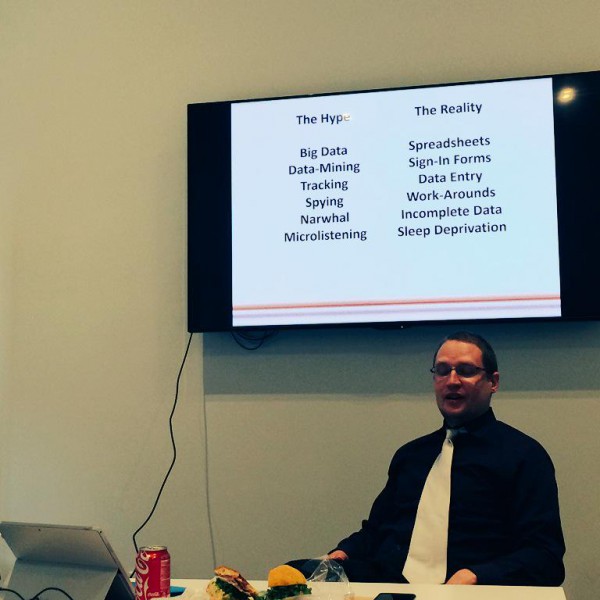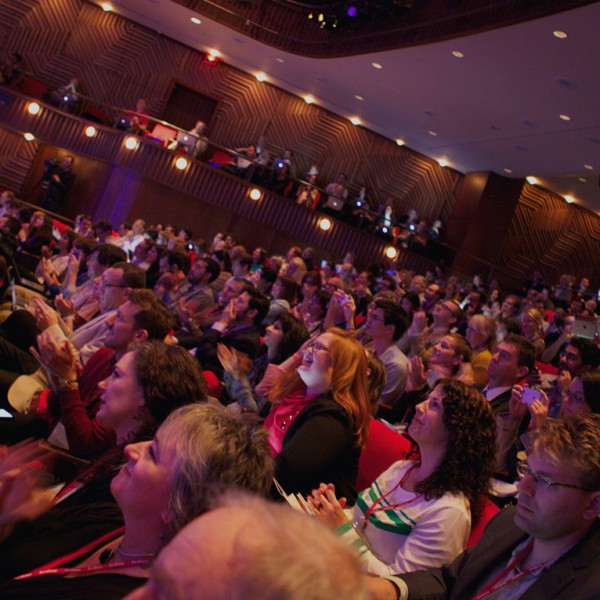ETHAN ROEDER ON THE FUTURE OF POLITICAL ANALYTICS
- JESSICA MCKENZIE
- May 19, 2015
- 10:17 am
“Journalists should be pushing campaigns to answer ethical questions about the work they’re doing.”

Personal Democracy Forum is in less than three weeks, and we’re reaching out to some of the speakers for a quick preview of their respective talks and panels. First up is Ethan Roeder, who ran the data department for the Obama campaign in 2008 and 2012. Roeder stopped by Civic Hall yesterday to lead a brown bag lunch talk on political campaigns and data. We caught up with him afterwards to ask a few questions about the PDF panel he’ll be moderating, on the future of political analytics.
You’re moderating a bipartisan panel at Personal Democracy Forum on the digital politics of 2016, featuring campaign consultants and analysts Scott Tranter, Kass Devorsey, and Masa Aida. What questions are you going to raise?
The thing that I’m most interested in is the relationship between outside actors (like I360, Civis, and BlueLabs). The second thing would be innovations in analytics. One of the things I’ve heard is that building an individual-level candidate support model is a trivial affair in 2014. If building an individual-level of support model is no longer an advantage, what is?
Roeder mentioned that he hasn’t yet figured out if he’s going to ask a framing question to get the panel started, and if so, what it will be. Perhaps people with strong opinions on the subject could offer suggestions in the comments.
What questions should the media ask campaigns about their use of data this election cycle?
Here’s what I hope doesn’t happen. As I mentioned in the talk, in 2012 we did a very effective job at hosing the media. And as a result they just came up with their own narratives. It wasn’t necessarily in our best interest but we effectively deflected all of their questions
What I would hate to see happen is the media learn all the wrong lessons from that. Like Micah said, I hope they just don’t ask, “Does he have a Pinterest page?” There is a “Does he have a Pinterest page” equivalent for data, technology, and analytics. For example, “Are you using online data to target people?” Of course they’re using online data to target people.
I think that journalists should be pushing campaigns to answer ethical questions about the work they’re doing. “Is there a line you won’t cross?” That’s the question I would ask. If you can’t give me a definition of your own understanding of the lines you won’t cross, it probably means you’re crossing a line.
I’m less interested in the privacy question than Micah is, although that is a conversation that should happen. I’m more interested in the ethics.
Did you run into any ethically dubious activities when you were working on campaigns?
No specific instances.
Campaigns exist to win. The only motivation of a campaign is to win. The only ethics of a campaign is whatever won’t hurt their chances of winning. I’m less interested in naughty things a particular campaign staffer did, and more interested in asking “What is your ethical compass? How do you determine what you will or won’t do?” I don’t think campaigns have an answer to that.


